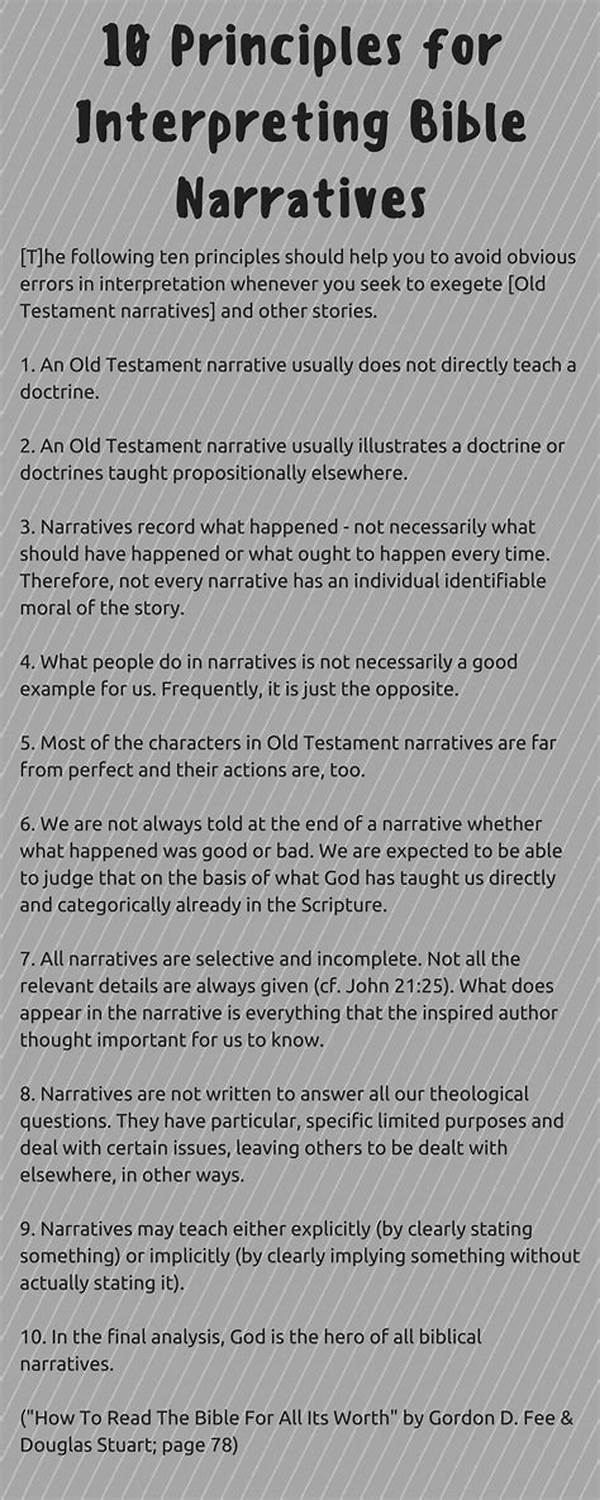Hey there! Have you ever noticed how certain songs have this magical way of telling stories? Well, when it comes to blending age-old tales with melodies, biblical narratives expressed in song are truly captivating. Imagine hearing the iconic stories from the Bible come to life through soulful tunes and harmonious rhythms. Ready to dive deeper into this fascinating topic? Let’s embark on this melodious journey together!
Songs as Storytellers
One of the most intriguing facets of biblical narratives expressed in song is their ability to convey deep spiritual truths and timeless lessons through music. When you listen closely, you’re not just hearing a tune but an entire story being retold. Songs have this unique power to stay with us, making complex ideas more relatable and easy to remember. Isn’t it amazing how a melody can transform a narrative into something that’s both engaging and memorable? Think about the profound impact when the age-old story of David and Goliath, for instance, is sung repeatedly. This oral tradition ensures stories are passed down through generations, adapting yet preserving their core essence. At times, we may find ourselves humming a tune without realizing the powerful biblical narrative it embodies. Through these melodies, biblical stories transcend time, resonating with people from diverse backgrounds and different walks of life. What’s your favorite biblical story expressed in song?
The Evolution of Melodic Narratives
Songs have the remarkable ability to transform static tales from scripture into vibrant experiences. Isn’t it fascinating how certain psalms have been turned into hymns that we still sing today? These biblical narratives expressed in song bring a sense of closeness to the stories.
1. Stories gain a new dimension when set to music. Think of it as adding color to a black-and-white sketch.
2. Melodies make messages memorable. Ever found yourself recalling a song’s lyrics during a moment of reflection?
3. The rhythm and tune can evoke emotions far deeper than spoken words.
4. Cultural interpretations add diversity to how these stories are sung and understood worldwide.
5. Engaging with these songs can offer fresh insights, making ancient tales relevant to today’s context.
Connecting Through Music
Music serves as a universal language uniting individuals across cultures and beliefs. When we think about biblical narratives expressed in song, it’s truly a testament to how stories can break boundaries. Picture this: you’re at a gathering, and someone starts singing a hymn that narrates a biblical tale. Suddenly, everyone, irrespective of their background, joins in, creating a collective experience. That’s the beauty of music! These songs allow us to connect with history, spirituality, and each other in ways simple text cannot. Biblical narratives expressed in song have this knack for reminding us of our shared humanity, echoing values of faith, hope, and love. It’s no wonder that such songs play an instrumental role in church gatherings, events, and even personal introspection.
In today’s ever-evolving world, music remains one of the few constants and biblical narratives are its powerful tool. Perhaps next time you hear a familiar tune, you might pause to appreciate the story it tells.
Diverse Interpretations of Sacred Stories
The variety in how biblical narratives are expressed in song adds richness to our spiritual and cultural landscapes. Every rendition brings something fresh to the table, be it through different musical styles or language.
1. Gospel and choral renditions bring a soulful depth to these stories.
2. Contemporary Christian music offers modern twists on timeless tales.
3. Instrumentals can convey stories without words, purely through melody.
4. Folk and traditional tunes keep cultural interpretations alive.
5. Children’s versions, often simplified, introduce young ones to these narratives.
6. Global variations allow us to appreciate how universal these stories truly are.
7. Collaborative performances highlight how communities come together to celebrate sacred tales.
8. Digital and electronic renditions bring biblical stories to younger, tech-savvy audiences.
9. Multilingual versions showcase the universality of these narratives, transcending linguistic barriers.
10. The adaptability of these stories in song proves their timeless appeal and relevance across ages.
The Timelessness of Biblical Tunes
Isn’t it fascinating how biblical narratives expressed in song have stood the test of time? Ever since these tales were first penned, they have found their voice in music, a testament to their lasting impact. Songs serve as vessels, bridging the past with the present, ensuring the stories they tell never fade away. There’s a reason why hymns are still sung centuries after they were composed. Their capacity to convey emotion, inspire reflection, and instill hope remains unmatched. Biblical stories in song remind us of virtues that hold true regardless of the era. The beauty of these narratives is their inexhaustible depth. Every rendition offers a fresh perspective, an invitation to delve deeper and understand more. While music styles evolve and cultural contexts shift, the heart of these stories stays steadfast. They encourage us to draw strength in challenging times and find joy in life’s simple blessings. So next time you find yourself swaying to a hymn, pause and soak in the wisdom it carries.
Musical Narratives as Bridges
Music can create bridges where words might fail. For many, biblical narratives expressed in song serve as an entry point into understanding deeper spiritual truths. When words alone seem daunting or distant, melodies transform them into something approachable and tangible. It’s as if the music acts as a bridge, connecting us to stories, emotions, and meanings we might otherwise miss. What makes songs particularly special is their ability to speak to both our hearts and minds, offering solace, understanding, and inspiration, all wrapped in the warmth of a familiar tune. With each rendition, listeners embark on a personal journey, rediscovering age-old truths and values. Through music, these biblical narratives not only persist but thrive, constantly evolving yet staying intimately connected to their roots. Isn’t it remarkable that something as simple as a song can hold such transformative power?
